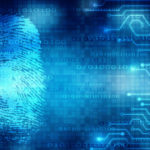HSBC's bid for biometrics
The bank and First Direct offer their 15 million customers biometric banking software for accessing their accounts online and by phone using their fingerprint or voice.

ifteen million customers identified through their voice and fingerprints. This is the goal set by HSBC, which is extending its bid for biometrics in the United Kingdom. HSBC and First Direct customers who use telephone banking and mobile apps can access their accounts through a system that checks their voice and fingerprint. The bank believes that the software will help it address the issue of forgotten passwords.
Francesca McDonagh, HSBC's retail banking and wealth management manager, describes the decision as “the largest deployment of voice-based biometric security technology in the United Kingdom”. “The launch of voice and touch ID makes it even easier for customers to access their bank accounts, using the safest form of password: the body”, she concludes in this article published in The Guardian.
First Direct will start registering customers for voice identification in the coming weeks and HSBC will follow suit in summer. Customers who decide to use this option must register their “voiceprint” and will never again have to use a phone password or PIN.

The English newspaper mentions other examples of banks that are embracing biometrics.
Barclays launched its voice recognition software for its 300,000 wealthiest customers in the United Kingdom in 2013. One year later it said that this technology had been so successful that it would extend it to its 12 million retail banking customers. Barclays intends to offer them voice recognition by the end of this year, since “it has been incredibly popular” among its wealthiest customers, who used to spend 1.5 minutes checking their identity and can now do so in less than ten seconds.
Lloyds Banking Group has said that it is considering including Amazon Echo in its online banking services, a voice-controlled hands-free device that is only available in the United States. The bank claims that 360,000 blind or visually impaired people in the United Kingdom could benefit from voice recognition.
Royal Bank of Scotland says that touch ID has been a “great success” following its launch last year, with over one million customers now logging in using their fingerprint.
In the United States, several banks have tested biometric technology and Citi has around 250,000 customers who use voice recognition authentication.
Touch ID is available on all Apple mobile devices for HSBC and First Direct. Customers have to download the mobile banking app and follow the instructions for associating their fingerprint.
And yes, it works even if you have a cold. Joe Gordon, HSBC's customer contact manager in the United Kingdom, says that voice recognition works even if you have a cold. In the BBC Today program he claimed that “we will be able to deal with people with a cold or with slight handicaps. Things like the size of our mouth or the vocal tract don't change. Neither does the rhythm or accent when a person has a slight cold”.
Nuance Communication is supplying the voice biometric technology that cross checks more than 100 unique identifiers, including behavioral features such as speed, rhythm and pronunciation, and physical aspects like the shape of the larynx, the nasal tract and the nasal passage.
According to a YouGov survey published by HSBC, the British believe that, along with voice and touch, the heart beats, the hair and even the saliva could be used as passwords in the future. According to the survey, 38% of people use the same password for most of their accounts, while 55% say that they rarely update their passwords. 78% of the 2,038 adults surveyed were sure that their body was the only thing that could be used as a password, and 74% felt that it would become the default password in the future.